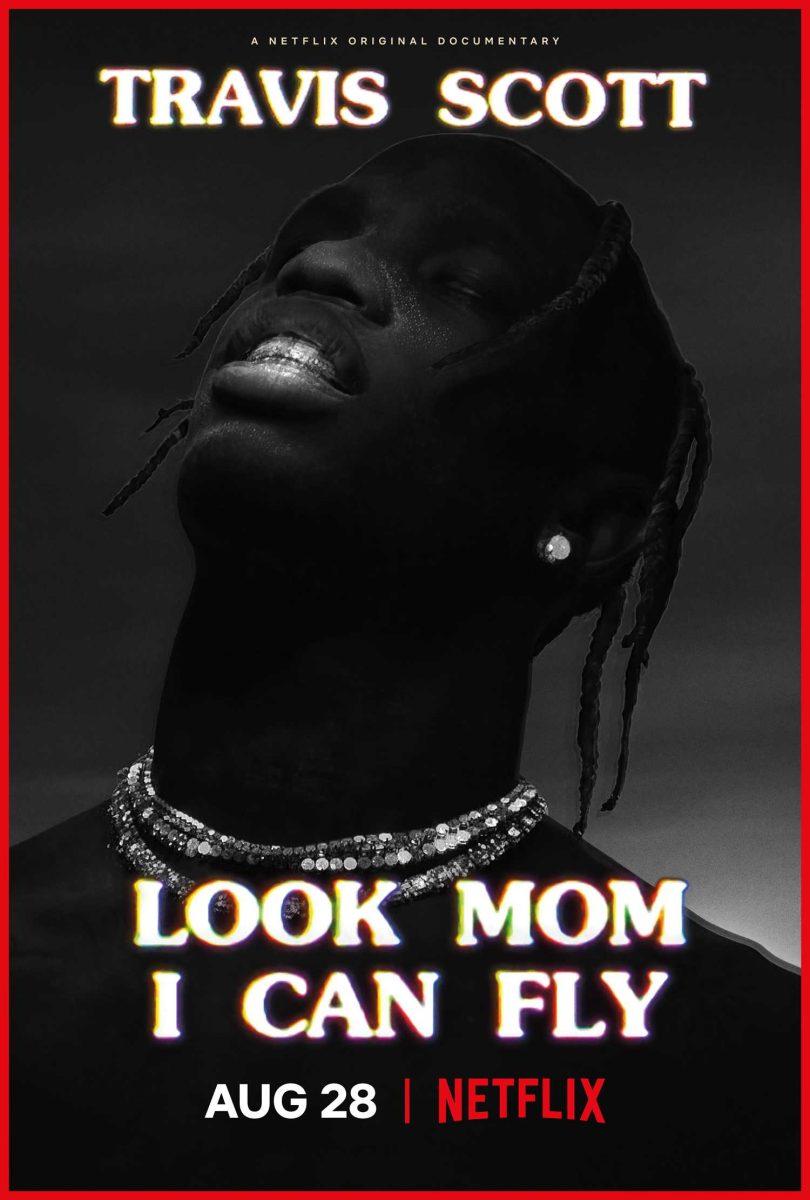Stars: 2.5/5
Few names in the world of hip-hop, or even in the world of music as a whole, are as recognizable and well-regarded as Travis Scott. From his early mixtapes in the early 2010s, to his rise to stardom thanks to singles like, “Antidote,” and the start of his own label Cactus Jack. Scott, born Jacques Berman Webster II, has been making waves for years now.
However, it was with the release of his 2018 magnum opus, “Astroworld,” that Scott really launched his career. Loved by fans and critics alike, “Astroworld” garnered Scott’s best sales yet, along with three Grammy nominations. The Houston rapper’s third studio album made Travis Scott a household name, and his fandom quickly rose to become one of the most dedicated, and notoriously wild, in the rap game.
That same fan base got a special treat when Netflix released the documentary, “Travis Scott: Look Mom I Can Fly.” The documentary follows Scott from his early childhood and follows a loose storyline about the making of “Astroworld.”
A love letter to Scott’s fans, and rap music in the 21st century as a whole, the roughly 90-minute documentary offers a recollection of events that focuses on sensation and growth, rather than simply presenting events as they happened. It often feels more like propaganda for Scott rather than an actual documentary (which can be contributed to the fact that Scott himself had producer credits on the project).
Every artistic choice in the film is clearly meant to draw sympathy, passion, and love to Scott. For being a documentary about the making of an album, very little of the album is actually present, as the film seems to be more interested in mirroring Scott’s early childhood and love of Six Flags Astroworld in Houston, with his current life and obsession with recreating that love.
Unfortunately, it is the minority of the film, the bits in which we see the craft behind the world-renowned album, that are the most interesting and fun parts of the project. Seeing Scott’s child-like love of music and the passion he has behind the production of the music humanizes him more than any video of him as a child could, and the love he has for his music increased my respect for him as a musician to grow ten-fold. The highest point of the entire film had to be the first time Scott heard fellow rapper Drake’s feature in the hit single from the album, “SICKO MODE.” Seeing Scott jump around excitedly after hearing, “Checks over stripes,” undoubtedly put a smile on my face.
Despite this, and some other highlights including the birth of Scott and girlfriend Kylie Jenner’s daughter Stormi, the project as a whole simply comes across as an exercise in braggadocio, a chance for Scott to defend himself against his critics and haters.
The film starts with a recollection of Scott’s controversial arrest in Arkansas in May of 2017. Despite trying to build sympathy, it’s hard for one to feel as though security and the police were the bad guy when Scott, two film minutes prior, was ushering people to rush the stage, causing several injuries in the process.
Perhaps the weakest aspect of the film as a whole involves the slightly aimless structure. There is no narration, which actually is a breath of fresh air, yet the connections between scenes are often weak, as the making of the album often times fades into the background for some of Scott’s life moments.
This wouldn’t be an issue if it weren’t that so much of the documentary relies on this album. This aimless direction causes the film’s pacing to lull and jolt forward, creating a slightly jarring experience.
At the end of the day, “Look Mom I Can Fly,” offers up a brief and fascinating look into the making of an artist’s greatest achievement, but, aside from that, simply plays out as a shallow, unfocused look into the life of one of hip-hop’s biggest names.
Diehard fans of Scott have a lot to chew on with this, but average viewers will simply be watching from the ground. Travis Scott might be able to fly, but a much more polished and meaningful documentary will be needed to take audiences with him.






